The World-Wide Fund (WWF), with the help from the Dutch government, has launched the Dutch Fund for Climate and Development (DFCD) to help develop bankable projects on the Kafue Flats.
The project, valued at €166 million, is expected to finance a number of bankable projects between public and private companies, which were aimed at protecting and sustaining use of natural resources, such as water.
Speaking during the launch in Lusaka, Tuesday, Finance Minister Dr Bwalya Ng’andu, in a speech read on his behalf by Ministry of Finance Controller of Internal Audit Joyce Phiri Sundanno, said the Fund would provide an opportunity for the country to embark on an informed science-based process, which would support the development of bankable solutions for companies and industries affected by climate change.
“This is timely initiative considering the apparent effects of climate change on the entire economy. The initiative will provide one of the many opportunities for public opportunities for public, private and civil society entities to take individual and collective actions to address climate risks via bankable solutions. The Fund we are launching today (Tuesday) provides an excellent opportunity for the country to embark on an informed science-based process to support the development of bankable solutions for companies and industries affected by climate change. I am informed that the Dutch Fund for Climate and Development has been established with support of the Dutch government to provide a vehicle of support to private sector companies to develop bankable projects that investors can support across four key countries namely; Zambia, Kenya Turkey and Paraguay,” said Dr Ng’andu.
“In Zambia, the Fund is envisaged to support business entities working around the Kafue Flats to develop and deliver sustainable investments that will contribute to the sustainability of the landscape. As noted, the Kafue Flats are facing high pressure on its water resource. I am also informed that business entities that draw water from Kafue Flats for their production have undertaken a process to move from just being water users to water stewards. It is my hope that the Dutch Fund for Climate and Development will be an excellent vehicle in unlocking investor growth, both foreign and domestic, as it will provide readily available bankable projects.”
And WWF country director Nachilala Nkombo said the launch had come at a right time when the country was at risk of challenges resulting from climate change.
Nkombo explained that Kafue Flats was chosen for refinancing of bankable projects because it was the economic engine of the country.
“This launch is coming at the right time in the sense that, as a country, Zambia, and as a global community, the issue of climate risk is affecting everybody and for us that is crucial to find the most effective solutions to deal with all negatives of climate change. The DFCD is a vehicle, a financial instrument that has been created with the sponsorship from the Dutch government to help countries and landscapes that have been affected by climate risk to their development and economic prospect. The whole idea of the DFCD is to make sure that we can create prosperity and improve the well-being of people, including women and children. We are today concentrating on pilot bankable projects that will be undertaken within the Kafue Flats to respond to the challenge of climate change,” said Nkombo.
“The Kafue Flats, from our research, is the economic engine in the country, if the Kafue Flats’ natural resource collapsed, it will have implications not only within the flats, but as a county as a whole. The Kafue Flats provides 44 per cent of Lusaka with water. 50 per cent of our country’s hydro comes from the Kafue Flats. The flats also produce 90 per cent of sugar cane that is for local consumption and the international market. So, we started a journey with our private sector partners of identifying potential bankable projects within the Kafue Flats. We are working with Zambian Breweries and Zambia Sugar to look at how we can enhance ecological certifications within their value chains looking at barley farmers and sugar farmers and how those farmers could gather support so that they’re able to take some of the sustainability action are being taken by the private sector. This project is valued at €166 million and it is meant to be a catalytic fund to support the origination of bankable projects so that we have the sort of information that can be taken to the market for bigger financing. Our hope is that from the €166 million, we can leverage even close to €100 million if we are modest in the sort investments that may come.”




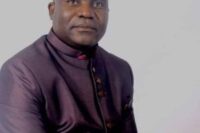
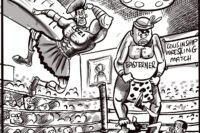
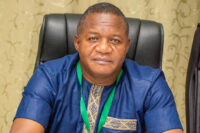

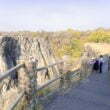

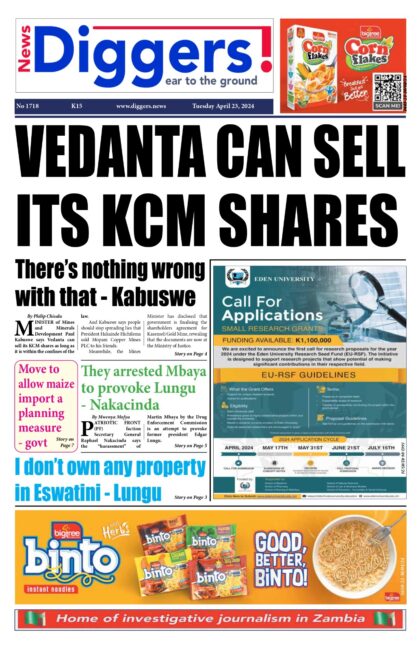
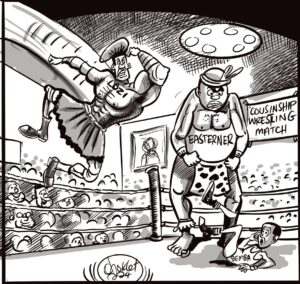

One Response
We really want such kind of initiatives.we live around kafue flats area and attested to the adverse effects of climate change.Reuben success Chivumo. Milandu ward councillor